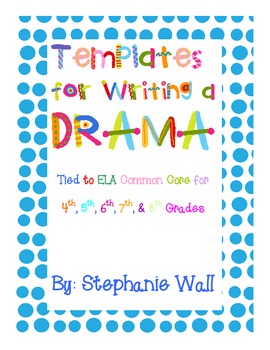Drama Club8th Grade Ela Page
Pdf converter to ms word file download unbound iso. Grade Checks are expected every Thursday to determine eligibility for the following Friday. Students must have grades above a 'C' a 'D' results in 2 weeks to get your grade up to a 'C'; failure to do so results in leaving the club. A 'F' results in being out of the club for the quarter. Students cannot miss more than 3 days Sports are excused.
Drama Club8th Grade Ela Pages
Standards in this strand:
- Reading is an ongoing lesson. Our 5th grade reading and writing worksheets focus on literacy for 10 and 11 year olds. Your child will hone their reading skills with grammar worksheets, simple summary writing guides, fill-in-the-blank stories, and more. Make learning enjoyable in the classroom or at home with fifth grade reading and writing.
- English/Language Arts (ELA) Students' 2020-2021 Middle School Code of Conduct. Drama Club; FBLA (Future Business Leaders of America). Newspaper Club; Newspaper; Prep Clubs. 6th Grade Prep Club; 7th Grade Prep Club; 8th Grade Prep Club; Running Club; Spring Musical; Student Council; World Culture Club; Yearbook Staff; Bunker Hill Middle.
- CCSS.ELA-Literacy.RL.4.2 - Determine a theme of a story, drama, or poem from details in the text; summarize the text. Authors: National Governors Association Center for Best Practices, Council of Chief State School Officers Title: CCSS.ELA-Literacy.RL.4.2 Determine A Theme Of A Story, Drama, Or Poem From.

Conventions of Standard English:
Demonstrate command of the conventions of standard English grammar and usage when writing or speaking.
Explain the function of verbals (gerunds, participles, infinitives) in general and their function in particular sentences.
Form and use verbs in the active and passive voice.
Form and use verbs in the indicative, imperative, interrogative, conditional, and subjunctive mood.
Recognize and correct inappropriate shifts in verb voice and mood.*
Demonstrate command of the conventions of standard English capitalization, punctuation, and spelling when writing.
Use punctuation (comma, ellipsis, dash) to indicate a pause or break.
Use an ellipsis to indicate an omission.
Knowledge of Language:
Use knowledge of language and its conventions when writing, speaking, reading, or listening.
Use verbs in the active and passive voice and in the conditional and subjunctive mood to achieve particular effects (e.g., emphasizing the actor or the action; expressing uncertainty or describing a state contrary to fact).
Vocabulary Acquisition and Use:
Drama Club8th Grade Ela Page
Determine or clarify the meaning of unknown and multiple-meaning words or phrases based on grade 8 reading and content, choosing flexibly from a range of strategies.
Use context (e.g., the overall meaning of a sentence or paragraph; a word's position or function in a sentence) as a clue to the meaning of a word or phrase.
Use common, grade-appropriate Greek or Latin affixes and roots as clues to the meaning of a word (e.g., precede, recede, secede).
Consult general and specialized reference materials (e.g., dictionaries, glossaries, thesauruses), both print and digital, to find the pronunciation of a word or determine or clarify its precise meaning or its part of speech.
Verify the preliminary determination of the meaning of a word or phrase (e.g., by checking the inferred meaning in context or in a dictionary).
Demonstrate understanding of figurative language, word relationships, and nuances in word meanings.
Interpret figures of speech (e.g. verbal irony, puns) in context.
Use the relationship between particular words to better understand each of the words.
Distinguish among the connotations (associations) of words with similar denotations (definitions) (e.g., bullheaded, willful, firm, persistent, resolute).
Acquire and use accurately grade-appropriate general academic and domain-specific words and phrases; gather vocabulary knowledge when considering a word or phrase important to comprehension or expression.
Authors: National Governors Association Center for Best Practices, Council of Chief State School Officers
Title: CCSS.ELA-Literacy.RL.3.5 Refer To Parts Of Stories, Dramas, And Poems When.. Reading:Literature - 3rd Grade English Language Arts Common Core State Standards
Publisher: National Governors Association Center for Best Practices, Council of Chief State School Officers, Washington D.C.
Copyright Date: 2010
(Page last edited 10/08/2017)
- A Feast of Words on a Planet Called Earth and Beyond - Unit Plan; demonstrates the use of idioms and fiction; read poems that focus on a simple topic; research about other planets. exhibits careful diction.
- Comparing a Story to a Play - Online lesson with visuals.
- Line Breaker - The Line Break Explorer engages children in exploring a poem (shown at left) and hypothesizing about why lines are broken where they are in poetry. Students then experiment with line breaks and how they affect rhythm, sound, meaning, appearance, and can substitute for punctuation in poetry.
- Narrative Elements - Read these pages and click on the correct answers to the questions.
- Put on a Play! - Many scripts to select from to print and engage your students.
- Story Planning - Interactive Game online; plan out the story using the corrct story elements. First part suitable for 2nd grade, rest of game suitable for 3rd grade.
